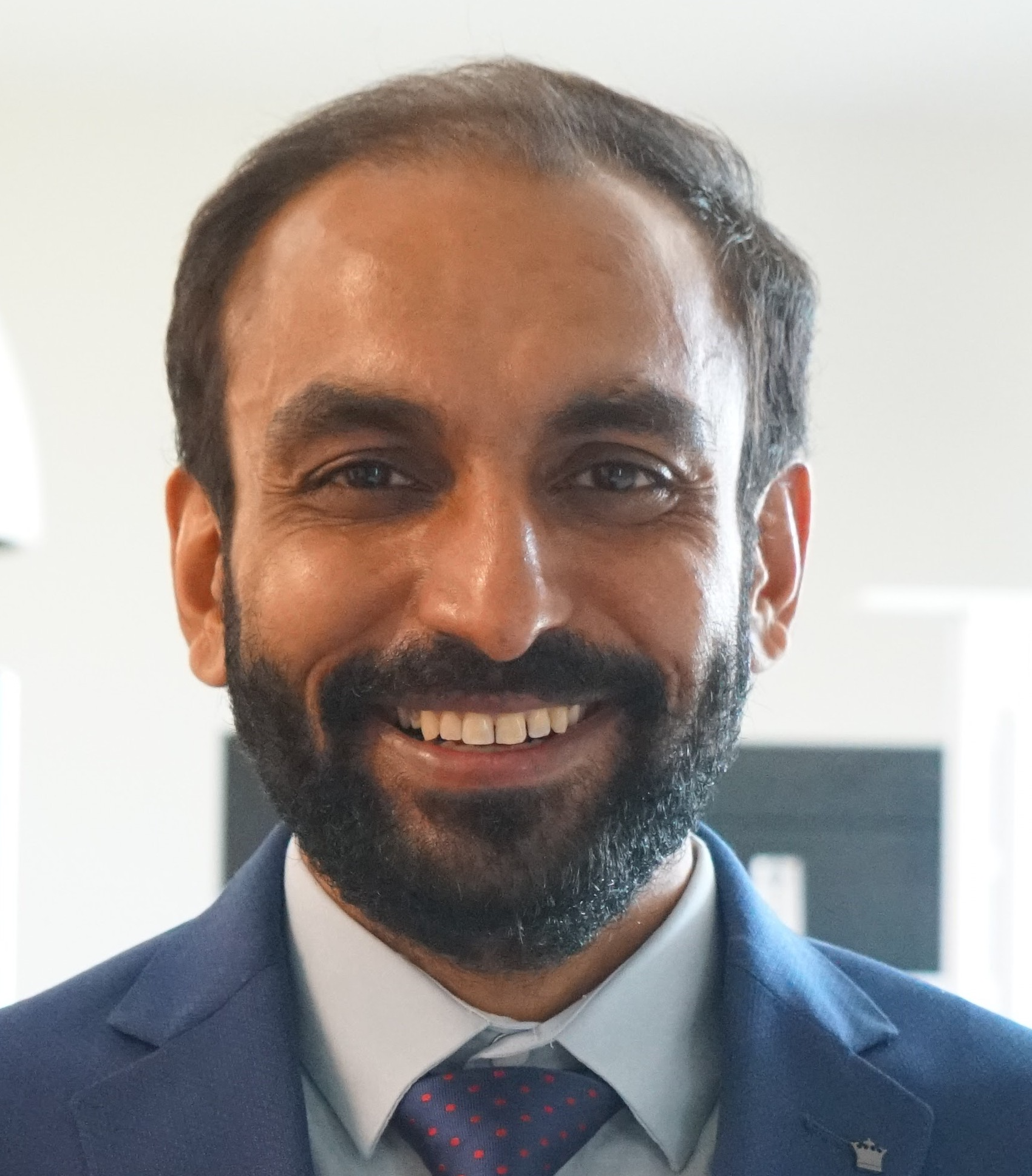Tutorial: NEURo-symbolic AI fOr meNtal hEalthcare
ABSTRACT

Artificial Intelligence (AI) systems for mental healthcare (MHCare) have been ever-growing after realizing the importance of early interventions for patients with chronic mental health (MH) conditions. Social media (SocMedia) emerged as the go-to platform for supporting patients seeking MHCare. The creation of peer support groups without social stigma has resulted in patients transitioning from clinical settings to SocMedia supported interactions for quick help. Researchers started exploring SocMedia content in search of cues that showcase correlation or causation between different MH conditions to design better interventional strategies. User level Classification based AI systems were designed to leverage diverse SocMedia data from various MH conditions, to predict MH conditions. Subsequently, researchers created classification schemes to measure the severity of each MH condition. Such adhoc schemes, engineered features, and models not only require a large amount of data but fail to allow clinically acceptable and explainable reasoning over the outcomes. To improve Neural-AI for MHCare, infusion of clinical symbolic knowledge that clinicans use in decision making is required. An impactful use case of Neural-AI systems in MH is conversational systems. These systems require coordination between classification and generation to facilitate humanistic conversation in conversational agents (CA). Current CAs with deep language models lack factual correctness, medical relevance, and safety in their generations, which intertwine with unexplainable statistical classification techniques. This lecture style tutorial will demonstrate our investigations into Neuro-symbolic methods of infusing clinical knowledge to improve the outcomes of Neural-AI systems to improve interventions for MHCare:
- (a) We will discuss the use of diverse clinical knowledge in creating specialized datasets to train Neural-AI systems effectively.
- (b) Patients with cardiovascular disease express MH symptoms differently based on genderdifferences. We will show that knowledge-infused Neural-AI systems can identify gender-specific MH symptoms in such patients.
- (c) We will describe strategies for infusing clinical process knowledge as heuristics and constraints to improve language models in generating relevant questions and responses.
1 TUTORIAL SCHEDULE AND ACTIVITIES
The tutorial will cover methodologies for classification, generation, and multitask learning. Although we use MH has the use case, other application domains where domain and process knowledge are critical in decision making will benefit from the methods we will discuss. Six modules of the tutorial are:
- (15 mins) Introduction with Use Cases: We will begin the session motivating the need for Knowledge-infusion based neuro symbolic AI technqiues for use in MHCare. Real world examples will be used to demonstrate limitations in current statistical and data driven AI Systems. This will highlight the necessity of duality between data and knowledge for developing explainable AI systems [16], as opposted to the contemporary statistical AI and data driven approaches.
- (30 mins) Explainable Data Creation: Explainable data refers to resources that leverage guidelines created by subject matter experts (SMEs) in labeling samples of the datasets. For instance, “Reddit CSSRS Dataset” uses SME created Columbia Suicide Severity Rating Scale as the scheme to annotate posts from users writing on r/SuicideWatch subreddit [2, 6, 9]. We will discuss four such datasets.
- (30 mins) Knowledge-infusion for Classification: Classification problems in MHCare require end user clinician to retrospect on the models’ outcomes and reason on it for explanations, followed by documting the basis of decision (diagnosis, treatment plan) made by the clinician. If the classification scheme is not grounded in clinical knowledge, it would subject to varied interpretations and wrongful conclusions. In this module, we will discuss the use of expert curated ontologies as the source of knowledge to be infused in machine learning classifiers. Further, we will introduce novel evaluation metrics for assessing the effectiveness of the classifiers [2, 3, 13].
- (25 mins) Knowledge-infusion for Language Generation in Conversational Systems: Drawing on the findings from the infusion in classification based AI systems, we will investigate parallel methods in generation-based AI systems for conversational AI. In MHCare, question and response generation are not simply conditional on the user query or posts but rather retrieval of knowledge passages, context in previous generated question or response, knowledge context disambiguation, and logical coherence is equally important for consistent and conceptual flow based conversations. We will discuss methods to achieve conceptual flow on MHCare datasets [1, 5]. We will discuss the benefit evaluation metrics based on pre trained language models to assess AI systems for generation.
- (25 mins) Process Knowledge-infused Learning: While covering “knowledge-infusion for generation” we will be focusing on making deep language models capable of generating questions and responses by designing new constraint based optimization functions [14]. Whereas, in this module, we will enforce logical coherence constraints in deep language models using (a) process knowledge guided dataset [8], and (b) constraint based optimization function [12]. We introduce novel evaluation metrics to better judge the performance of AI System.
- (30 mins) Knowledge aware Multitask Learning: We design a multitask learning framework for identifying MH symptoms that consider gender language infused in user social media posts using (a) how we built a massive data set for task adaptation, (b) how knowledge aware task adaptive models can help decision making process for clinicians, (c) how to formulate a knowledge aware transformer model and the sources of knowledge used in the design, and (d) how our model provides the clinically relevant outcome [11].
Some of the previous and related tutorials: (a) Knowledge-infused Reinforcement Learning, (b) Explainable AI using Knowledge Graphs [4], (c) Knowledge In Wisdom Out Explainable Data for AI [15], (d) Knowledge-infused Deep Learning [7], and (e) Knowledge-infused Learning for Autonomous Driving.
2 TUTORIAL ORGANIZER BIOS
Kaushik Roy:

He is a Ph.D. student at Artificial Intelligence Institute at the University of South Carolina (AIISC). He completed his master’s in computer science at Indiana University Bloomington and has worked at UT Dallas’s starling lab. His research interests include statistical relational artificial intelligence, sequential decision making, knowledge graphs, and reinforcement Learning. His work is published in reputed conferences in IEEE, KR, AAAI, and ECML-PKDD. For more details, please visit his webpage.
Usha Lokala:

She is a Ph.D. student at AIISC. Her research interests include ontology engineering, knowledge graphs and natural language processing. Her interdisciplinary research funded by NIH, NIDA, and NSF applies ontology, deep learning, and natural language processing in the domain of Public Health, Addiction, Social Media Analysis and Age related Cognition. Her work has been published in reputed conferences and Journals (IEEE, Drug and Alcohol Dependence, WWW, CPDD, AAAI ICWSM, JMIR, PLOS One). [10]’s work on public health addictions won second prize in Opioid Challenge at SBP BRiMS 2018, a computational social science conference. For more details, please visit her webpage.
Manas Gaur:

He is an Assistant Professor at the University of Maryland Baltimore County (UMBC) Department of Computer Science. His research expertise uses knowledge graphs, artificial intelligence, and natural language processing methods for knowledge intensive language understanding applications such as conversational AI, summarization, and recommender systems. Before UMBC, I was a senior research scientist in the AI Center in Samsung Research America, a visiting researcher at Alan Turing Institute, and a Ph.D. student with Dr. Amit Sheth in the AIISC. His work has been covered through media articles, podcast interviews, and invited keynotes. For more details, please visit his webpage.
Amit Sheth:

He is an Educator, Researcher, and Entrepreneur. He is the founding director of AIISC and NCR Chair at The University of South Carolina. Previously , he was the LexisNexis Ohio Eminent Scholar and the executive director of Ohio Center of Excellence in Knowledgeenabled Computing. He is a Fellow of IEEE, AAAI, ACM, and AAAS. He has organized >100 international events (general/program chair, organization committee chair), >70 keynotes, given >45 many well attended tutorials and is among the well cited computer scientists. He has founded three companies by licensing his university research outcomes, including the first Semantic Web company in 1999 that pioneered technology similar to what is found today in Google Semantic Search and Knowledge Graph. Several commercial products and deployed systems have resulted from his research. For more details, please visit his webpage.
3 TUTORIAL AUDIENCE AND PREREQUISITES
This tutorial will bring researchers in academic, industry, and healthcare practitioners at the confluence of knowledge representation, reasoning, semantic linking, NLP, and deep learning. Since it is a lecture style tutorial, basic understanding of AI machinery, machine learning (ML), and deep learning, and natural language processing (NLP) is assumed. This will allow the audience to appreciate the limitations in statistical AI in MHCare and follow through the advancement in AI, reaching towards Neuro symbolic AI in general and for MHCare in particular. The tutorial will cover basics and advanced methodologies in machine learning, deep learning, and NLP/NLU/NLG with sufficient examples. Newcomers interested in AI/ML systems for healthcare, will learn the current state of AI/ML systems for MHCare. Expert attendees will appreciate methodologies and datasets presented in tutorial as promising, reliable, and practical approaches to overcoming familiar technical obstacles in social good domains. We encourage other researchers to use our datasets and approach to provide additional analysis, to further our understanding of knowledge-infused AI systems for MHCare and other domains.
4 ACKNOWLEDGEMENT
We acknowledge partial support from National Science Foundation (NSF) awards #1761931 and #2133842.
5 SLIDES
6 Tutorial Video
Downloadable link of the video Tutorial. Link
Link to the conference page. Link
Cite this tutorial. Link
REFERENCES
- [1] Amanuel Alambo, Manas Gaur, Usha Lokala, Ugur Kursuncu, Krishnaprasad Thirunarayan, Amelie Gyrard, Amit Sheth, Randon S Welton, and Jyotishman Pathak. 2019. Question answering for suicide risk assessment using reddit. In Proc. of 13th IEEE ICSC.
- [2] Manas Gaur, Amanuel Alambo, Joy Prakash Sain, Ugur Kursuncu, Krishnaprasad Thirunarayan, Ramakanth Kavuluru, Amit Sheth, Randy Welton, and JyotishmanPathak. 2019. Knowledge aware assessment of severity of suicide risk for early intervention. In Proc. of 30th ACM WWW.
- [3] Manas Gaur, Vamsi Aribandi, Amanuel Alambo, Ugur Kursuncu, Krishnaprasad Thirunarayan, Jonathan Beich, Jyotishman Pathak, and Amit Sheth. 2021. Characterization of time variant and time invariant assessment of suicidality on Reddit using CSSRS. PloS one (2021).
- [4] Manas Gaur, Ankit Desai, Keyur Faldu, and Amit Sheth. 2020. Explainable AI Using Knowledge Graphs. In ACM CoDS COMAD Conference.
- [5] Manas Gaur, Kalpa Gunaratna, Vijay Srinivasan, and Hongxia Jin. 2022. Iseeq: Information seeking question generation using dynamic meta information retrieval and knowledge graphs. In Proc. of AAAI.
- [6] Manas Gaur, Ugur Kursuncu, Amanuel Alambo, Amit Sheth, Raminta Daniulaityte, Krishnaprasad Thirunarayan, and Jyotishman Pathak. 2018. " Let Me Tell You About Your Mental Health!" Contextualized Classification of Reddit Posts to DSM-5 for Web based Intervention. In Proc. of 27th ACM CIKM.
- [7] Manas Gaur, Ugur Kursuncu, Amit Sheth, Ruwan Wickramarachchi, and Shweta Yadav. 2020. Knowledge-infused deep learning. In Proc. 31st ACM HT.
- [8] Shrey Gupta, Anmol Agarwal, Manas Gaur, Kaushik Roy, Vignesh Narayanan, Ponnurangam Kumaraguru, and Amit Sheth. 2022. Learning to Automate Follow up Question Generation using Process Knowledge for Depression Triage on Reddit Posts. arXiv preprint arXiv:2205.13884 (2022).
- [9] Usha Lokala, Raminta Daniulaityte, Francois Lamy, Manas Gaur, Krishnaprasad Thirunarayan, Ugur Kursuncu, and Amit P Sheth. 2020. Dao: An ontology for substance use epidemiology on social media and dark web. JMIR Public Health and Surveillance (2020).
- [10] Usha Lokala, Francois R Lamy, Raminta Daniulaityte, Amit Sheth, Ramzi W Nahhas, Jason I Roden, Shweta Yadav, and Robert G Carlson. 2019. Global trends, local harms: availability of fentanyl type drugs on the dark web and accidental overdoses in Ohio. Computational and mathematical organization theory (2019).
- [11] Usha Lokala, Aseem Srivastava, Triyasha Ghosh Dastidar, Tanmoy Chakraborty, Md Shad Akhtar, Maryam Panahiazar, and Amit Sheth. 2022. A Computational Approach to Understand Mental Health from Reddit: Knowledge Aware Multitask Learning Framework. In Proc. of ICWSM.
- [12] Kaushik Roy, Manas Gaur, Qi Zhang, and Amit Sheth. 2022. Process Knowledge- infused Learning for Suicidality Assessment on Social Media. arXiv preprint arXiv:2204.12560 (2022).
- [13] Ramit Sawhney, Atula Tejaswi Neerkaje, and Manas Gaur. 2022. A Risk Averse Mechanism for Suicidality Assessment on Social Media. ACL (2022).
- [14] Amit Sheth, Manas Gaur, Kaushik Roy, Revathy Venkataraman, and Vedant Khandelwal. 2022. Process Knowledge-Infused AI: Towards User-level Explainability, Interpretability, and Safety. arXiv preprint arXiv:2206.13349 (2022).
- [15] Amit Sheth, Kaushik Roy, Manas Gaur, and Usha Lokala. 2021. Tutorial on Knowledge In-Wisdom Out-Explainable Data for AI in Cyber Social Threats and Public Health. (2021).
- [16] Amit Sheth and Krishnaprasad Thirunarayan. 2021. The Duality of Data and Knowledge Across the Three Waves of AI. IT Professional (2021).